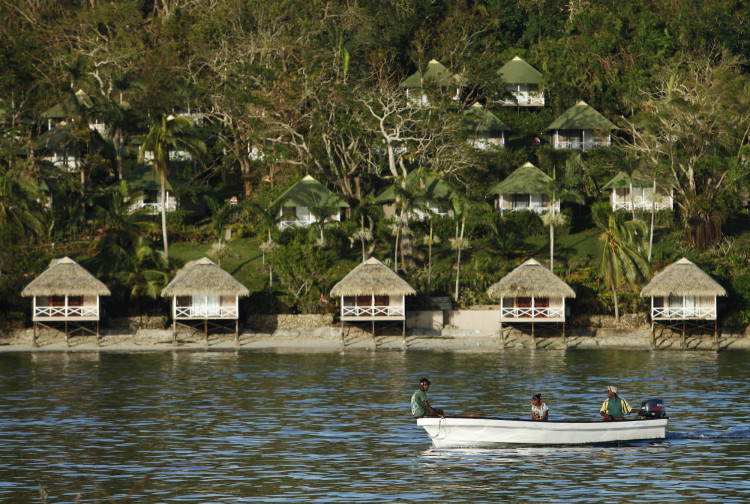Although Pacific island nations outside of Australia and New Zealand have largely managed to keep the COVID-19 pandemic at bay, there is a growing concern among them about a possibly more severe existential threat: a growing pile of debt.
The senior economic adviser to the Pacific Islands Forum Secretariat, Denton Rarawa, said at a forum last week that despite the relatively low number of casualties in the region from the pandemic, "the economic fallout of COVID-19 is having a devastating impact on the region."
Rarawa said that together, Pacific Island Forum countries are expected to report a 4.3 percent contraction in gross domestic product in 2020. But some of the smaller, tourism-dependent countries are expecting even worse economic hits. The International Monetary Fund June quarterly outlook shows Fiji can expect a contraction of 21.7 percent, and Palau a shrinkage of 11.9 percent.
The Pacific Islands Forum comprises Australia, the Cook Islands, the Federated States of Micronesia, Fiji, French Polynesia, Kiribati, Nauru, New Caledonia, New Zealand, Niue, Palau, Papua New Guinea, Republic of Marshall Islands, Samoa, Solomon Islands, Tonga, Tuvalu and Vanuatu.
Declines in trade, employment and remittance flows to the region are also weighing on growth. In order to get their economies fully primed again, Pacific nations will rely on the reopening of international borders and the restart of tourism, labor, and trade activity, according to the Asian Development Bank (ADB).
But the ADB added that the consequences of the current economic fallout are falling heavily on those countries already suffering from extreme poverty, which it said could increase in the region by more than one million people – a 40 percent rise from pre-COVID-19 levels.
Adding to the challenges some countries face are burgeoning public debts. Papua New Guinea, which is experiencing a spike in COVID cases, with official numbers at 287 as of last week and its economic well-being suffering because of falling commodity prices, is one of them. Another is Fiji, whose public debts, as a proportion of GDP, have almost doubled since the pandemic began.
Neelesh Gounder, a senior economics lecturer at the University of the South Pacific in Suva, Fiji, said at the forum that Fiji has seen its debt levels rise to an unsustainable level.
"By July 2021, Fiji's debt will be somewhere around 8 billion Fijian dollars [$3.7 billion] which will be, at the current GDP rate, around 80 percent of GDP," he said, adding that principal payments and interest payments alone will will amount to 1.1 billion Fijian dollars, while the country is expected to bring in just 1.6 billion Fijian dollars in revenue.
"This is huge, and I don't see how Fiji will be able to pay off its debt in the future unless there is debt cancelling," he said.
According to the Rarawa, most countries have little room in their budgets to take out additional loans or even repay their current loans.
At the conclusion of the two-day online 2020 Pacific Islands Forum Economic Ministers' Meeting (FEMM) last Wednesday, Tuvalu Finance Minister Seve Paeniu, who chaired the meeting, told reporters that economic ministers of the region are calling for support from international partners to address the financial hardships the governments are facing.
The Pacific nations are urging bilateral, multilateral, regional and development agencies to provide debt relief and offer more money to existing donor programs, among other requests, to tide them through the crisis.
But it is not only the Pacific nations that are facing financial difficulties. Donor countries are also facing difficulties so may not be able to offer dramatically increased help.
"Let's ...remember this pandemic is impacting the whole world, not just our region," Rarawa said.
"So the financing landscape is also changing," he added. "It's becoming difficult but [Pacific island] countries are looking towards additional support from wherever they can, from the rest of the international community and the preference is towards grant financing more than debt financing," he said.
Australia, which is a member of the Forum, said it would try to help the region economically.
Alex Hawke, Australia's minister for international development and the Pacific, said he thinks the member countries of the forum are "collaboratively working on what can we do together to ensure there is good support regionally from international sector - whether that's multilateral banks, whether that's financial institutions, whether that's the UN."





